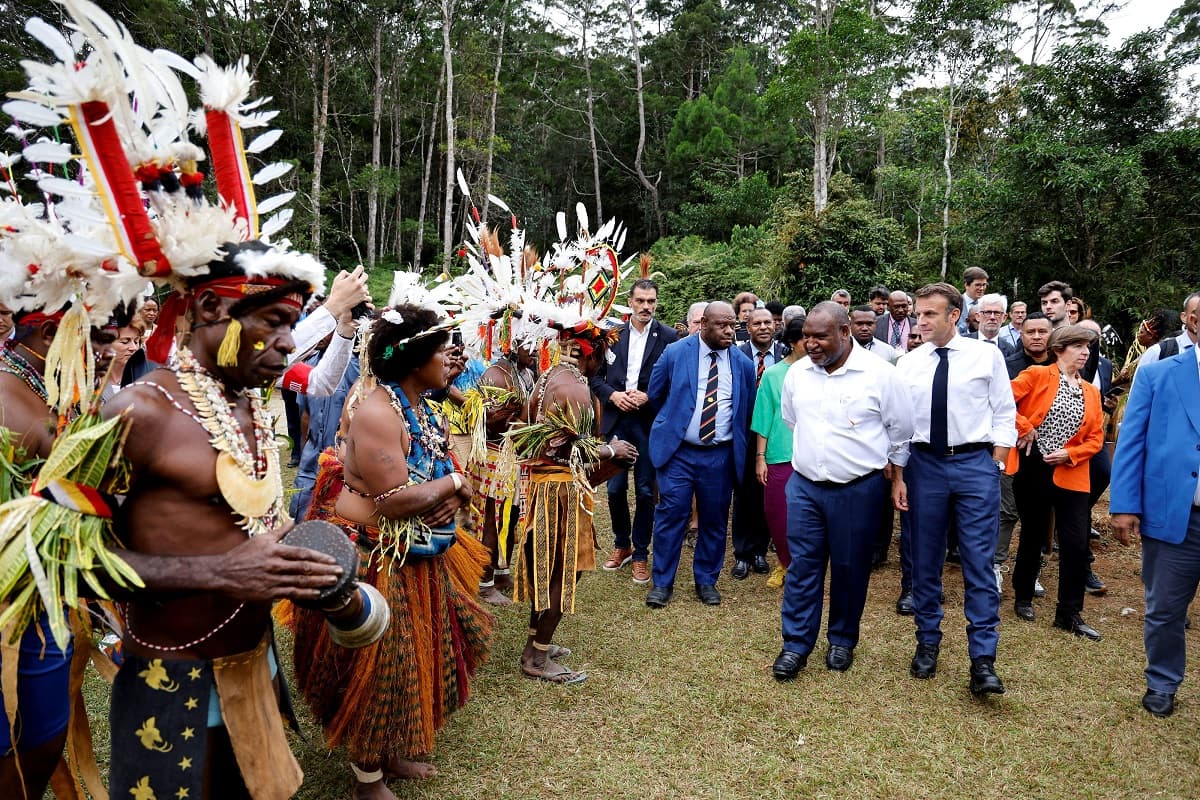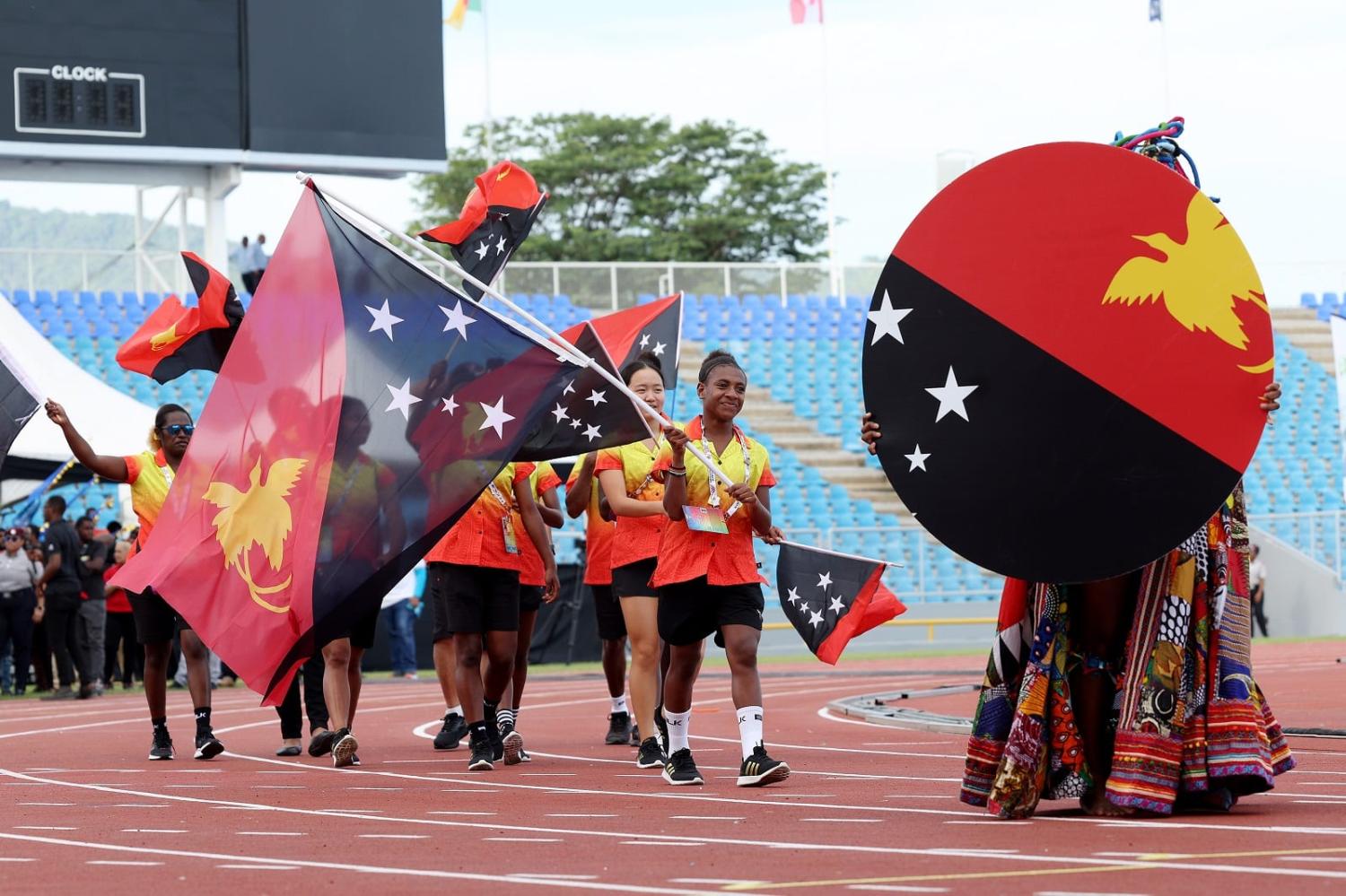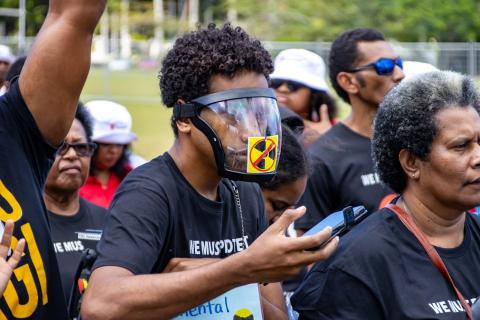Public attention in Papua New Guinea has recently been occupied by the PNG-US Defence Agreement and the stalled Aus-PNG Security Treaty. There is not much transparency around either at present. Bilateral security agreements with PNG have long existed, from the “outdated” US status of forces agreement to regional security agreements. But the US agreement has sparked domestic tensions and caused delays for Australia’s negotiations.
In Port Moresby last week, the University of PNG and the Lowy Institute jointly hosted a “Public Forum on Security and the National Interest”, where high-level PNG government officials and experts tackled the tough issues and shed some light on policies and priorities. Few would dispute Chief Secretary Ivan Pomaleu’s observation that inadequate police numbers, capacity and equipment need urgent government attention – population growth and crime are outpacing police force development.
But law and order alone will never solve security challenges – especially with rising regional and social inequities. Dr Elizabeth Koppel from PNG’s National Research Institute in her remarks outlined how women in PNG risk their personal safety daily for the sake of economic security, as they struggle to eke out a living in the informal economy amid rapidly escalating cost of living pressures.
There are myriad security challenges confronting local communities. Energy supply shortfalls and price spikes, rapid population growth and porous borders that leave the country vulnerable to transnational crime and illegal fishing are high on the government and public agenda. There are no easy solutions, but many noted that more policies and big promises won’t solve food, water, transport and other insecurities affecting the 85 per cent of the population living in villages and doing it tough. Informal and often unserviced urban settlements also face challenges. More resources and strengthened institutions might help, but only if there is the political will to act in the face of countervailing and powerful political interests.

Traditional and non-traditional partners are lining up to assist, but they have their own interests and geopolitical agendas. Secretary of Foreign Affairs Elias Wohengu explained that PNG wants to shape security agreements and treaties to advance national interests. For him, that means bilateral security agreements should include measures to expand trade and economic security, enhance disaster responsiveness, and open opportunities for education and skills development. He wants security agreements to include opportunities to supply food and services to domestic and internationally based security forces. Leaving aside phytosanitary requirements, it was a bold bid to leverage Western eagerness to clinch security deals.
Wohengu will take his time to ensure that the deals won’t compromise sovereignty, constitutional protections, or permit foreign police to operate outside of PNG command. He wants to bring voters worried about sovereignty and militarisation along with him – with the grace period for votes of no confidence in the government ending early next year, voter support is key.
While there is much attention to alliances and partnerships to address geopolitical jostling, the climate crisis in PNG and the region is intensifying. PNG is highly vulnerable to climate change. “There are no [political] boundaries when it comes to air pollution and climate change,” UPNG Professor Chalapan Kaluwin told the forum, yet scientifically informed policy is scant. PNG security needs partnerships that inform practice and policy, and direct scarce resources effectively. Much of domestic climate policy remains ad hoc and driven by development partners and global agendas from afar.
PNG’s business community is critical to job creation and elevating standards of living. But local entrepreneur Luania Temu argued the basic building blocks that could underpin better economic security are missing. Supply chains are being disrupted by incomplete Covid pandemic recoveries and the Ukraine war. PNG is hit even harder because of big gaps in connectivity – electricity and internet are patchy, and road networks don’t link key commercial centres. Government policy and investments are helping, but policymakers could be far more strategic in how scarce funds are spent.
The recent procession of well-intentioned world leaders visiting Port Moresby bearing gifts has made it plain that PNG is an important player in regional geopolitics. Visiting leaders, including India’s Narendra Modi, France’s Emmanuel Macron and Indonesia’s Joko Widodo, along with head of USAID Samantha Power, have raised expectations of greater international support for PNG’s security and development priorities, even if the underlying motivation for much of the increased international attention is to secure strategic access to the country’s valuable geography. But the yawning gap between the strategic imperatives of larger powers and the critical human security needs of PNG is not lost on the government nor the youth cohort, who were quick to take to the streets to voice their displeasure when the US-PNG DCA was leaked.
It would be unwise to dismiss as naïve Wahengu’s effort to link hard security negotiations with direct and visible economic benefits for PNG’s agricultural sector. The reality is that PNG has something larger powers want, and that gives the country’s leadership leverage. PNG’s leaders are under increasing pressure to reverse the country’s declining human development indicators and deliver a better deal for its citizens. And while creating a secure and prosperous PNG can only be achieved through strong internal political will, external partners will find themselves facing a higher price of admission. Supporting local champions for change and prioritising human security – health, education and livelihoods – might be the best strategic play yet.


